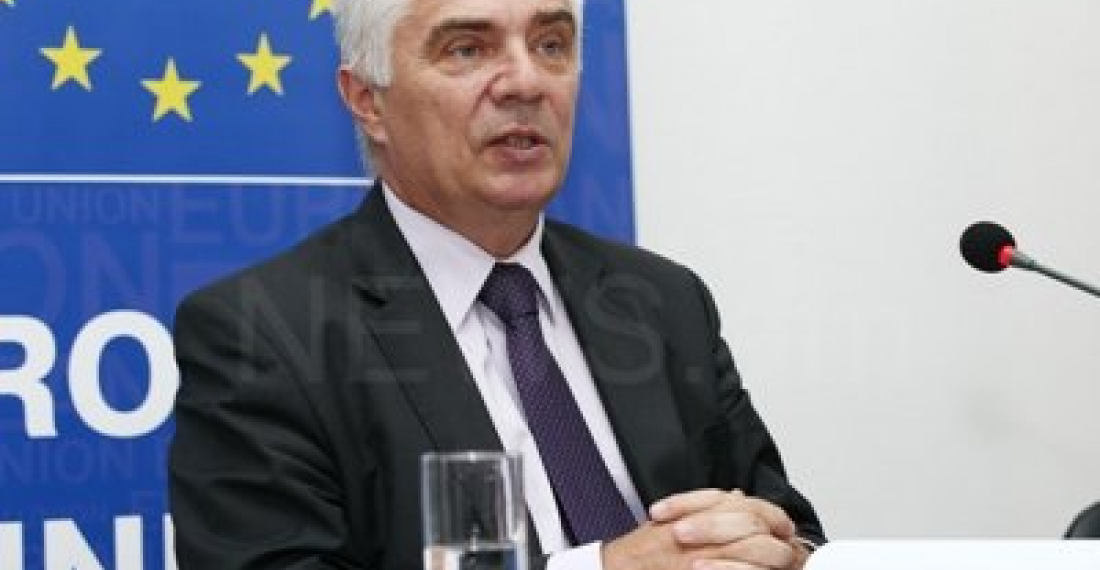The Head of the European Union Delegation to Armenia, Piotr Switalski, gave a positive assessment of relations between the European Union and Armenia when he spoke on Tuesday at the Media Centre in Yerevan. Switalski said that 2016 was a busy, but successful year for EU-Armenia relations. "We expect the momentum in the relations to be maintained and taken to a new level in 2017, as we bring the new framework agreement [between the EU and Armenia], to a successful conclusion".
The head of the EU Delegation said that in 2016 the European Union transferred 62 million euros in development assistance to Armenia and signed contracts for a further 50 million euros.
Switalski said that the EU has five priorities in its dealings with Armenia: (a) a successful implementation of the Election project, leading to good elections in April; (b) improving the business climate; (c) co-operation in the fight against corruption; (d) implementation of the human rights support contract which has clear commitments; (e) strengthening the independence of the judiciary based on the fact that the EU has already allocated 50 million euros for judicial reform.
Switalski said that the discussions on the new framework agreement "are very advanced and the negotiators are very close to conclusion of the agreement, and if everything goes well the finalisation of the negotiations will be a major event in 2017". The EU diplomat said that there are still some open issues, "but we have no reason to believe that they cannot be overcome". He highlighted what he called the new circumstances that emerged after 2013 among these still open issues. He added that from its side the EU sees "a sincere effort and a constructive approach from the Armenian side".
The Head of the EU Delegation to Armenia also said that the two sides are also finalising two other agreements: the first will define the partnership priorities of the two sides and state them into a politically binding document; the second document will be the single support framework which will outline the development priorities that the two sides identify for working together until 2020.
Switalski said that the EU attached great importance to the forthcoming parliamentary elections in April. "Good, fair, just and transparent elections will help boost relations, open new possibilities of co-operation and create a good climate for the future". He added, "the European Union has invested a lot - both in terms of money as well as political support so we have a deep and clear interest in the success of the elections". However Ambassador Switalski emphasised that the EU was interested in the clean nature of the election process, not the particular issues or personalities. He said that there were two areas of particular importance - the prevention of political corruption [vote-buying], and the use of administrative resources. He said that there was already a good legal framework but these now had to work in practice. "I am looking forward to the good conduct of the elections".
You can listen to a podcast of the press conference here
source: commonspace.eu
photo: Ambassador Piotr Switalski, Head of the EU delegation to Armenia speaking to journalists at the press centre in Yerevan on 24 January 2017.






